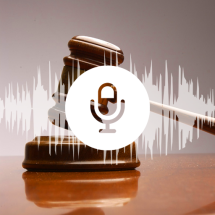Expunction and Non-Disclosures
A lot of our clients ask us if their crime can be expunged from the record. If you do have a criminal record, then this can really hinder your future employment and it can also stop you from getting a job at a later date. You might not be able to move positions and your past will continually haunt you. The problem with getting your record expunged is that it can be very complicated and very difficult, not to mention that you need to have a reliable attorney who can work with you to make sure that you get the best result out of it.
If you are convicted of a crime in Texas, that history could follow you throughout your life in different ways. It could seriously harm your ability to obtain gainful employment, prevent you from voting in particular instances or stop you from enjoying some of the same rights and privileges that most citizens take for granted.
Fortunately, Texas law provides those convicted of crimes to wipe the slate clean regarding their criminal record in the form of an expungement. However, obtaining such a result is an involved and intricate process that requires the help of a skilled criminal defense attorney. Carl Ceder & Associates PLC is a Texas law firm that has helped countless clients clear up their criminal record and obtain a fresh start.
Overview
Gone are the days when checking or knowing the background of people is a privilege that is reserved for only a specific class of people. As it is a top secret, many employers of labor, scholarship board, loan application and apartment rentals find it hard to know the background of people they are hiring and so on.
Since the advent of the internet, you are a click away from understanding the criminal history of anyone. There are significant ramification and consequence to how easy to check the criminal history of individuals in the state of Texas. As an offender or convict, it is vital to know what your criminal record contains and where appropriate to clean up.
While it is not impossible to have a criminal record without committing any offense, Texans residents have to deal with the consequence of criminal record they are not guilty of or dismissal of their of their case before going to trial. There are cases where an individual is a victim of identity theft, and even though there is no conviction, the deed has been done, and you have a criminal record to battle with all your life.
As humans, we often make mistakes, and these mistakes still hound some of us. There are cases of offenders pleading guilty or convicted of crimes they have diligently paid their debt and tried to move on with their lives. Although the damage is done, this is preserved in their criminal record and acts as a roadblock. Irrespective of your situation, you deserve a second chance, and you must understand all aspect of laws peculiar to your case to help you wipe a clean slate.
Why you should know the basics
A competent attorney has two weapons in his arsenal to battle the cleaning of your criminal record. They are expungement also known as expunction in the state of Texas and order of non-disclosure.
Expungement is used by the defense attorney to permanently erase the offenses that are in the criminal records of an offender. Except in a rare circumstance, no one will know you were charged with a crime; this includes police officers, prosecutors or the court.
An order of non-disclosure on the other hand usually prevents a clerk of the court from disclosing the presence of an offense in your record in case of background checks. The main difference between the two is that these offenses technically stay on your record, but are hidden from certain parties.
While an expungement is more potent than a non-disclosure order, both can be of great help when it comes to the security of your criminal record. There is a different rule that dictates what is applicable in your case.
Expunctions
Chapter 55 of the Texas Code of Criminal Procedure contains provisions for the expunction of arrest records, court records and criminal history record information. The statute specifically details the requirements and procedures to properly expunge records in Texas. If you do have an expunction, then this will erase all of your criminal record. This includes when you were arrested, if you were arrested and even your court records. Of course, this is only awarded in very specific and limited circumstances. You will have to take into account when your case was dismissed, how you were found to be not guilty and even what happened after your trial. We will work with you to make sure that you get the best result out of your case, while also working with you to make sure that you get the expunction help and support you need along the way. If you are unable to file for expunction, it may be possible for you to file for a non-disclosure.
Circumstances for the availability of expungement:
- Acquittal notice
- Guilty and later pardoned
- Guilty and then found innocent
- An arrest for a misdemeanor but no formal charge AND the period have elapsed since your arrest which are:
- 180 days for a Class C misdemeanor (example such as traffic ticket)
- One year for a Class A or B misdemeanor
- Three years for a felony
An individual that does not meet any of the four circumstances listed above can receive an order of non-disclosure.
Non-Disclosure
When you have non-disclosure petition granted, any criminal agencies will be prevented from giving information about your arrest to the public. Your record will be sealed, and it will be given to you if you have deferred an adjudication. For a lot of offences, there is a waiting period before you can actually file a petition for a non-disclosure. This is usually between 2 and 5 years. If you have a non-disclosure order then it is possible, for some offences, for this to take effect immediately. The only way for you to see the arrest records is if you are prosecuted again for another crime.
If you would like to find out more about the above, then our law office is here to help you and we can’t wait to show you why we are one of the best at what we do. Contact us today to find out more information about our law services and our experience with both expunctions and non-disclosure cases.
You should not let your past mistakes get in the way of having a successful future. A criminal background check can limit your future employment possibilities, obtaining a loan, a job, an apartment, etc. The Law Offices of Carl David Ceder, PLLC, can help you seal your records so you can proceed on with your life by helping put your past behind you. Our office is dedicated to resolving cases in a way that helps allows our clients to significantly minimize the damage caused by past criminal cases. It is our goal in every Non-Disclosure case we handle to effectively “seal” the records from public view, thereby eliminating the avenue with which most agencies can obtain and view your past criminal record. It basically “seals” the record from public view.
What is an Order of Non-Disclosure?
An Order of Non-Disclosure is an order from the court requiring that the Texas Department of Public Safety (DPS) seal all criminal records related to a past criminal offense where Deferred Adjudication Probation was successfully completed. An Order of Non-Disclosure is authorized pursuant to Texas Government Code Section 411.081. Following the granting of an Order of Non-Disclosure, the past criminal records can only be disclosed to you, or to a criminal justice agency (only government entities would have access). This is most used in relation to when someone may get prosecuted again for another crime in the future. The DA’s Office would most likley be able to see how you successfully completed Deferred Adjudication Probation on criminal history when evaluating your background.
Non-Disclosure vs. Expunction
An Order of Non-Disclosure will effectively seal your records from being disclosed to the general public. People most commonly seek this for employment reasons. The records regarding your offense are not destroyed entirely. However, an Order of Non-Disclosure would prevent a private group selling background information from distributing that information to public. Moreover, in most circumstances, this Order does allow you to deny the occurrence of the arrest and prosecution when directly asked (by an employer for example). Unlike an expunction, the records subject to the Non-Disclosure can be used against an individual in a future criminal proceedings. Our office always recommends obtaining an expunction if you are eligible under the law. However, an Order of Non-Disclosure provides protection to many of those who are not eligible for an expunction who still want their records sealed. In most circumstances, it accomplishes the same thing needed for most individuals seeking to get their record sealed, and that is for job-related employer background searches.
Eligibility of an Order of Non-Disclosure
In order to be eligible for an Order of Non-Disclosure you must have successfully completed Deferred Adjudication Probation for the offense charge. This would ultimately amount to a dismissal of your case once the probationary period ends. The majority of misdemeanor cases are eligible for an Order of Non-Disclosure immediately upon successful completion of the Deferred Adjudication Probation. However, some misdemeanor cases require a waiting period after the dismissal has been issued. Offenses requiring a waiting period include: unlawful restraint, public lewdness, indecent exposure, assault, deadly conduct, terroristic threat, disorderly conduct, harassment, unlawful carrying of a firearm, obstructing highway or other passageway, interference with emergency telephone call, stalking, and bigamy. During the waiting period, the applicant must not be charged and convicted for anything other than a citation for a traffic offense. Moreover, all felony cases require a waiting period of at least five years after the dismissal has been issued. Please contact The Law Offices of Carl David Ceder, PLLC, to see if you are eligible.
Who is Not Eligible for an Order of Non-Disclosure?
Not all individuals who successfully complete a Deferred Adjudication Probation are eligible to obtain an Order of Non-Disclosure. The following are situations for those who would not be eligible:
Someone convicted or placed on Deferred Adjudication for an offense requiring registration as a sex offender;
• Someone convicted or placed on Deferred Adjudication for an aggravated kidnapping;
• Someone convicted or placed on Deferred Adjudication for murder or capital murder;
• Someone convicted or placed on Deferred Adjudication for injury to a child/elderly/disabled individual
• Someone convicted or placed on Deferred Adjudication for stalking
• Someone convicted or placed on Deferred aAdjudication for abandoning or endangering a child;
• Someone convicted or placed on Deferred Adjudication for violations of a protective order or magistrate’s order, or any offense involving family violence.
What is the process to obtain an Order of Non-Disclosure?
The first step would be to hire an experienced criminal defense attorney to review your records to determine if you are eligibile for an Order of Non-Disclosure. Once our office determines your eligibility, we can then file a Petition for Non-Disclosure with the Court where your criminal offense was originally filed. Once this Petition for Non-Disclosure is filed, a court date will be set and the District Attorney’s Office will have a chance to review the filing and either approve or deny the petition. If the District Attorney’s Office objects to the Petition of Non-Disclosure they can only do so at a scheduled hearing. Ultimately it is within the discretion of the Judge of the Court. If the court grants the Order of Non-Disclosure, then any information subject to the Order is removed from public information databases and records. However, government agencies still will be able to access the information, including, and especially, all law enforcement agencies. The process for obtaining and enforcing an Order of Non-Disclosure takes approximately 60 days to complete after it is approved.
How to get an order of non-disclosure in the state of Texas
For an individual to get an order of non-disclosure, he must have received “deferred adjudication probation.” Deferred adjudication probation in law parlance signifies that you have not technically been convicted, due to the judge not explicitly finding that you were guilty of the offense.
Instead, the judge found that there was enough evidence that a finding of guilt could have been made. This might be a bit technical for you to process; an example is if you receive regular probation, you do not qualify for an Order of Non-disclosure.
What is the effect of an Order of Non-Disclosure?
The individual may deny the existence of the arrest and prosecution to which otherwise public information relates, unless it is being used against her/him in a subsequent prosecution. Texas Government Code, Section 552.142. What this basically means is that a person can deny the very occurrence of the case, unless they are testifying at a trial and then would have to admit they successfully completed deferred adjudication (and subsequently had their record sealed). While not an expunction technically, this still is a very effective technique for having records sealed.





















